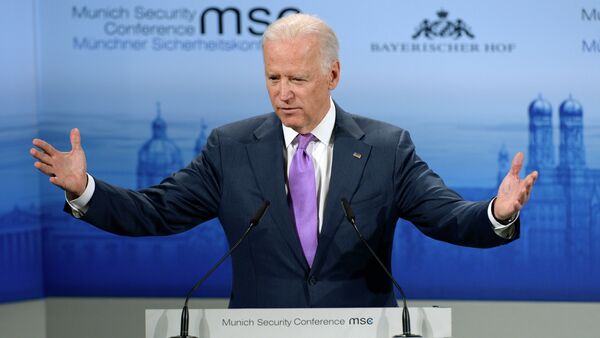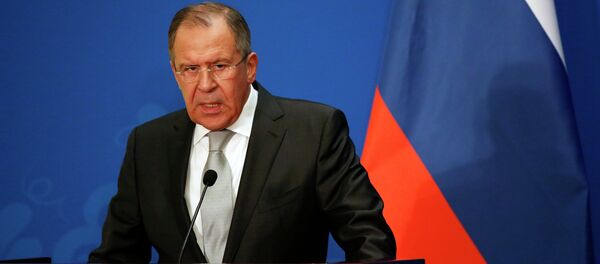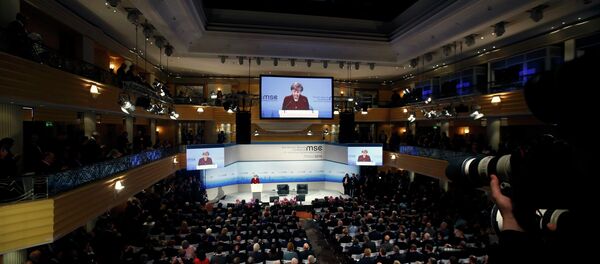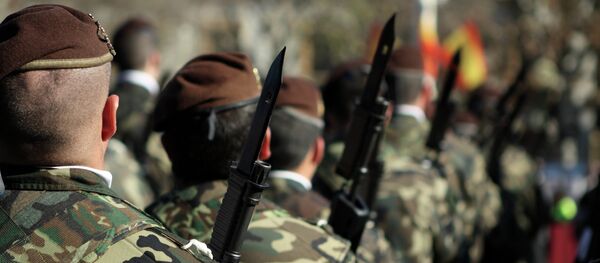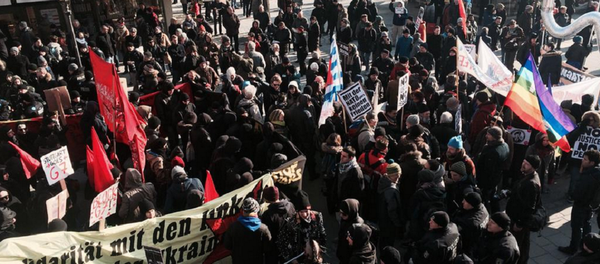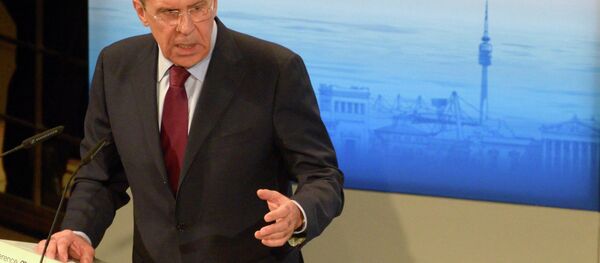"Most immediately, we need to remain resolute and united in our support of Ukraine," Biden said in an address to the Munich Security Conference.
"We will continue to provide security assistance to Ukraine, not to encourage war, but to allow Ukraine to defend itself," Biden said.
"We believe that the Ukrainian people have the right to defend themselves," Biden stressed, touching upon the issue of arming Ukraine.
The subject of possible deliveries of lethal weapons to Ukraine is causing much dispute in the international community, with the United States pondering the idea. Earlier on Saturday, Ivo Daalder, former US permanent representative to NATO, said that the only way to change the dynamic in the Ukrainian crisis was for Ukraine to receive defensive equipment "to help defend itself".
On February 5, US State Secretary John Kerry said the United States would allocate $1 billion in financial assistance to Kiev in addition to another $1 billion, authorized earlier, aimed at supporting reform plans.
"Russia needs to understand that as long as it continues its current course, the United States and God willing all of Europe and the international community will continue to impose costs over the violation of basic international norms," Biden said addressing the Munich Security Conference.
Biden added that Russia's President Vladimir Putin either has to leave the situation in Ukraine or be a victim of self-isolation and growing economic problems in his country.
The United States, the European Union and their allies have imposed multiple sanctions against Russia's banking, energy and military sectors, as well as against a number of high-profile individuals over Moscow's alleged involvement in Ukraine's internal affairs. Russia has repeatedly denied these accusations and continues to urge the conflicting sides to establish direct dialogue.
"There is a larger imperative that we have in the Trans Atlantic alliance, and that's the need… to strengthen NATO's capacity and capability within Europe," Biden said addressing the Munich Security Conference.
"We are also determined to ensure that NATO emerges stronger from this crisis," he added.
On Thursday, defense ministers of NATO member states agreed to create six command and control posts in Bulgaria, Estonia, Latvia, Lithuania, Poland and Romania. The bloc's Response Force will be increased from 13,000 to 30,000 people, the ministers announced.
Russia's envoy to the alliance Alexander Grushko told journalists Friday that the additional command centers in six different countries will inevitably lead to "adequate" changes in Russia's military planning.
Russia has repeatedly expressed growing concern over the buildup of NATO forces along its western border amid the Ukraine crisis. NATO, which has accused Russia of being involved in the Ukrainian crisis, claims that the expansion is aimed at protecting its member-states and allies.
No country, including Russia, should be allowed to use energy as an instrument of political pressure and coercion, US Vice President Joe Biden said Saturday.
"We need to ensure that no country, not Russia or any other nation, can use energy as a weapon of coercion to bully or change the policy of another nation," Biden said in a speech at the Munich Security Conference.
The United States has repeatedly expressed concern over Europe’s, and particularly Ukraine’s dependence on Russian energy supplies, calling to diversify energy sources. Russia accounts for about 30 percent of the European Union’s oil and gas imports.
Russia and Ukraine, which transits much of Russia’s gas exports to the EU, have had several disputes in recent years over issues such as price and debt payments. Russia has also claimed that Ukraine had siphoned off gas meant for Western Europe.
